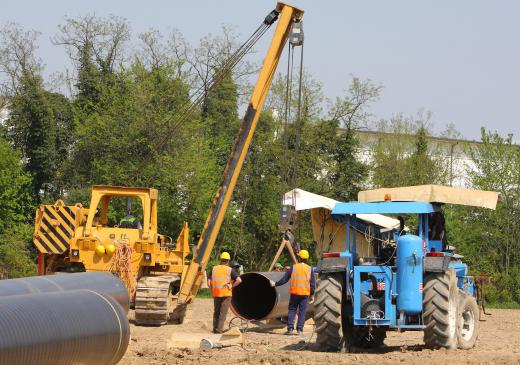There are usually at least three parties to any building contract: the property owner, who wants the property developed; the contractor, who is hired to oversee and execute the developing; and the local government, which sets regulations on how development must be executed. Any property construction or land development project must comply with local rules. If local rules are not followed, the government can halt further development by issuing a stop work order. A stop work order is usually presented as a sign or series of signs posted at the work site identifying the problems, and prohibiting further work until the problems are resolved. Ignoring a stop work order often means fines, or even jail time, for contractors and property owners.
Most cities and localities around the world have building codes that set restrictions on the types of buildings that can be erected, safety standards for work sites, and particulars for plumbing and sewer systems, among other things. Before land owners and contractors can begin a building job, they usually must obtain a government building permit that sets out all of the rules and regulations. In common law countries like the United States and the United Kingdom, local governments usually have statutory authority to intervene on private contracts that are not being executed in accordance with the issued permit. Intervention usually comes in the form of a stop work order.

It is usually in a government’s best interest to ensure that land is developed. A stop work order requires, as the name would suggest, that work be stopped on the site, but the work stoppage is not permanent. Most stop work orders last for 90 days. The order will outline exactly what needs to be fixed, which can be anything from safety measures for workers to permitting for additional buildings not contemplated in the original proposal. The order can be lifted if the problems are remedied before the order’s expiration, or extended if more time is requested by the property owner.
Property owners whose projects are the subjects of stop works orders have several options. They can terminate the contract entirely if they assess that the remedies outlined in the order would be too costly. Alternatively, they can do whatever it takes to resolve the government’s concerns. Ignoring a stop work order can subject both the property owner and any involved contractors to civil penalties, which generally consist of fines or, in some cases, imprisonment.
Stop work orders are destined to be costly for property owners. Abandoned projects mean that the owner loses his invested capital. Unless the compliance problems are easily remedied, fixing the problems is not always cheap, either. Owners do not usually need to pay contractors while work on the project is stopped, but the delay in progress will usually delay the completion date, which can mean lost revenue. The delay can also raise the total owed to the contractors, since contractors usually incur additional costs in stopping work abruptly, then starting back weeks or months later.
